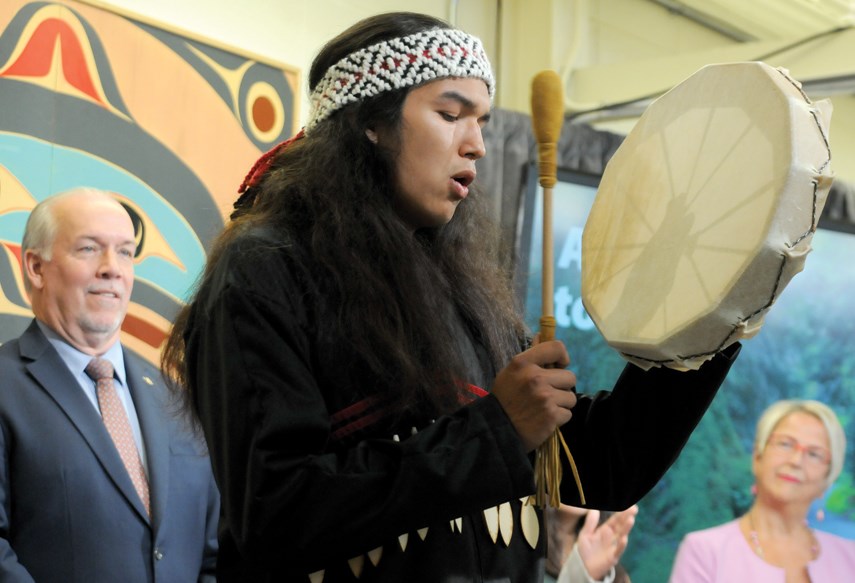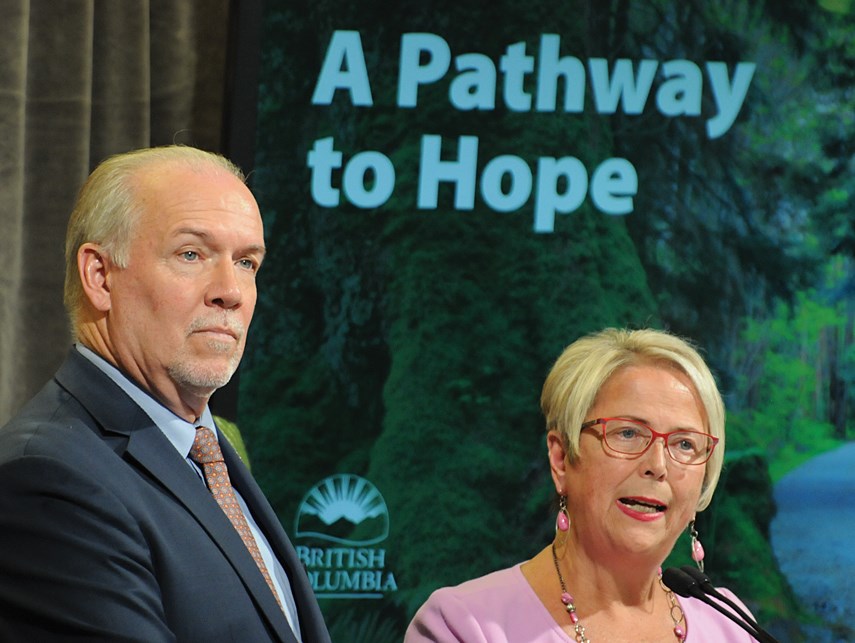B.C. will put more money into supporting free or low-cost community counselling services, as part of a plan to beef up supports for child and family mental health service, Premier John Horgan announced Wednesday.
Horgan and Judy Darcy, minister for mental health and addictions, made the announcement at Mountainside Secondary in North Vancouver, where counselling and support for youth with mental illness and addictions is built into the alternative school model.
The $10 million for extra counselling services provincewide is an acknowledgement of the rising number of school-aged children and youth reporting depression and anxiety, according to the province.
Mental health services have been neglected for “far too long” by previous governments that didn’t keep pace with the “obvious need in the community,” said Horgan, in making the announcement.
He said the additional money for counselling will help make sure “small problems don’t become big problems.”
Currently too many people who don’t have extended medical coverage provided by employers can’t access counselling because “they can’t afford it,” added Darcy.
The additional money for counselling is part of a government “vision” to put more resources into preventative help for kids facing mental health challenges, rather than being crisis driven, said the province.
Among the government’s priorities are opening of more multi-disciplinary Foundry centres for youth, like the one already open in Lower Lonsdale, and establishing two new day programs for children and youth with severe mental health or substance use problems who are moving out of hospital care. The government also plans to establish new family care home spaces as an alternative to hospitalization for youth, and launch new mental health resources to assist caregivers of preschool-aged children, as well as providing for Indigenous-led treatment options.
“Addressing trauma early on can make a lifelong difference,” said Darcy, adding the current overdose crisis has “shone a bright light on the gaps in our system.”

Bowinn Ma, North Vancouver-Lonsdale MLA, became emotional at one point when talking about the stories of families who come to her office looking for help.
Often people who don’t fit into very particular niches of the social and medical support system get told “We can’t help you here, go somewhere else,” she said in a follow-up interview.
Ma said there is often a big gap in service between when families first recognize a problem and when it becomes a crisis. Older teens who are transitioning into the adult medical system often also face challenges getting help, she said.
Raquel Ormandy, a member of the Tsleil-Waututh First Nation, told the crowd that support she received helped her to become the first member of her family to graduate from high school this year, despite moving out of her family home for her own well-being while still in high school.
Most people in the crowd, including politicians and social service groups, greeted the announcement Wednesday enthusiastically.
But Carolyn Pena, second vice-president of the North Vancouver Teachers Association, said she questions why the government doesn’t put more money directly into providing counsellors in schools. “That’s the front lines,” she said.
Although the North Vancouver School District puts more money into counsellors than required under provincial per-student formulas, Pena said most of those formulas were created in the 1970s, while the need for counselling has dramatically increased.
Without more money from the province, school districts don’t have the flexibility in their budgets to allocate more funding, said Pena.
“Almost every penny of their funding is spoken for.”



